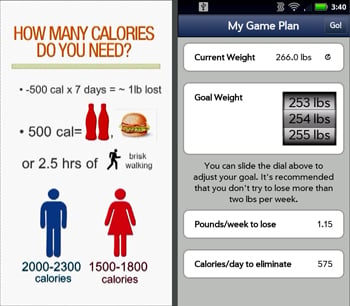Duke University unveiled results of a two-year long study that was looking to compare a specially designed mobile app can be more effective in promoting weight loss than traditional method of distributing fliers at a doctor’s office. The results of the 365-participant study are everything but promising, though.
“For some people it did work,” said lead author Dr. Laura Svetkey. “But on average, the difference with the control group was insignificant. This doesn’t mean cell phone apps can’t work for weight control, but this one didn’t.”
There are a few things that make this study particularly interesting: first it evaluated long-term weight loss outcomes, and second – it focused on 18- to 35-year-olds, a group that is often overlooked for weight loss despite the fact that weight gain is most rapid during these years.
Two things that make this study particularly interesting are: first it evaluated long-term weight loss outcomes, and second – it focused on 18- to 35-year-olds.“Thirty-five percent of this age-group is overweight or obese, and that’s a huge public health problem,” Svetkey said. “We thought that because this is an age group that is most engaged in technology, it might be possible to intervene and prevent future problems like cardiovascular disease, high blood pressure and diabetes while they are still developing their lifestyle habits.”
Study authors still aren’t quite sure why mobile app “didn’t work.” Whereas control groups normally gain a small amount of weight during these studies, this one lost 2-3 pounds. It may something to do with the design of the app itself which, unlike commercial weight loss app, wasn’t able to iterate in response to patient feedback. Also, it could be that the data was made muddy by participants in all groups using other commercial weight loss apps. However, researchers noted this (second) issue and have asked participants about other apps in a follow-up interview and found no significant difference in the control group between those who used outside apps and those who didn’t.
Weight loss apps are some of the most popular health apps for iOS and Android platforms, but there isn’t yet enough data that supports their effectiveness.
[Via: Obesity, mobihealthnews]


